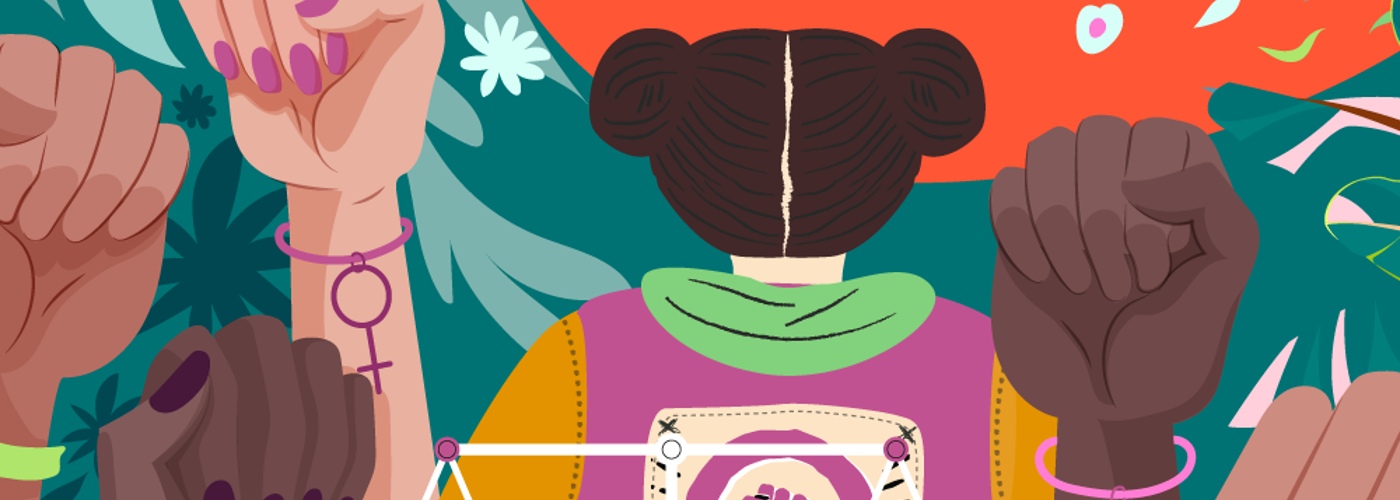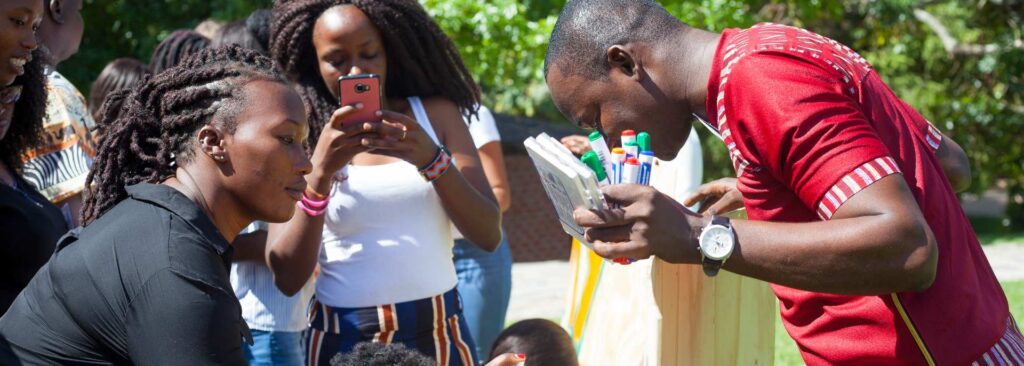Around the world, conservative fundamentalism has deliberately targeted the rights of women and sexual minorities in order to advance political agendas. In Central America, this continues to severely impact the position of young women and LGBTIQ+ people.
The Central America Women’s Fund (FCAM) has thoroughly delved into the emergence, expansion, and consolidation of religious fundamentalism in the region. FCAM is a partner organization in our We Lead program which aims to strengthen the influence and position of (young) women whose sexual and reproductive health and rights (SRHR) are neglected the most. Below is a summary of a full article and an introduction to FCAM.
A history of repression
Since the 1970s, many parts of Latin America have progressively fallen into the ever tighter grip of religious fundamentalist groups, organizations, and public figures on a crusade against the sexual and reproductive rights of women, young people, and people with diverse gender identities and sexual orientations. Notably in Central America, these fundamentalists have both influenced and joined up with political forces to achieve a short term goal of restricting the rights, freedoms, and autonomy of women and LGBTIQ+ people. In the long term, they seek to reconfigure the public’s notion of the rule of law by dismantling state secularism, and therefore, democracy.
The 1970s and 1980s: warning signs
In the 1970s, fundamentalist groups began to single out and condemn women who took birth control pills. Due to the popularity of contraceptives in the 1980s, these groups then turned to promoting legislative reforms that established that life began at conception. The wars, revolutions and social upheavals that marked the 1980s in Central America also helped strengthen and expand Pentecostalism. This was a time of great insecurity. People’s sense of well-being was non-existent, making Pentecostalism’s practice of faith healing very attractive. The prosperity theology of Pentecostal churches has also held particular sway over the poor. Many Churches took over governmental duties and provided some social assistance.
The 1990s: criminalizing sexual and reproductive rights
In the 1990s, right-wing governments came to power in most of Central America. The decade saw religious fundamentalists start a war on childbearing people. They mounted a new political-religious crusade against the expansion of sexual and reproductive rights, trying to ban abortion under all circumstances through constitutional amendments and reforms to the countries’ penal codes. One of the first countries in the region to ban abortion — and indeed in Latin America — was El Salvador, followed by Honduras and Nicaragua.
To earn popular support for these legislative reforms, conservative political advocacy groups created and disseminated a criminal concept of “abortionist.” The aim was to delegitimize feminist support for the permissible grounds for interrupting a pregnancy, which still existed in several countries. Their moralistic and religious narratives equated “abortionists” with “criminals.” When the new laws came into force, many young women from precarious economic and educational backgrounds were imprisoned, enduring sentences of three years in Honduras and up to thirty years in El Salvador for the “crime” of abortion, or “aggravated homicide.”
The early 2000s: a “new enemy” joins the blacklist
At the turn of the millennium, religious fundamentalists targeted a new enemy: same-sex couples. They would be prevented from legally marrying by discriminatory constitutional reforms. The fundamentalists’ propagandistic and legislative offensive triumphed first in Honduras, where same-sex marriage was constitutionally banned in 2005. This signaled the beginning of evangelical political dominance within Honduras’ legislative branch and throughout its institutions.
At the end of the decade: dictatorial fundamentalism
In June 2009, a coup established a military dictatorship in Honduras. In April 2018, Nicaragua experienced a political rift that remains unresolved to this day. And in February 2020, El Salvador’s president Nayib Bukele participated in a failed parliamentary coup. All these developments were supported by fundamentalist religious leaders, and in El Salvador Bukele justified his actions by claiming that God had spoken to him.
Systems of social inequality
Fundamentalism takes root and bears fruit in systems of social inequality and amongst sectors of the population affected by poverty and violence. It is not coincidental that religious fundamentalists seek to control their countries’ education systems and oppose not only comprehensive sexuality education, but also teaching human rights.
The presence of conservative and fundamentalist political parties are a great source of concern because they and their policies against human rights actually enjoy significant levels of popular support. In fact, these stances against human and women’s rights based on fundamentalist agendas are rapidly becoming “official” narratives of the state. Their impact on the lives of girls, women, and trans and non-binary people is both direct and terrible.
About Fondo Centroamericano de Mujeres (FCAM)
The Central America Women’s Fund (FCAM) is a regional women’s fund that has been bolstering the women’s movement throughout Central America for more than 19 years. It was born of a dream that Central American women in all of their diversity could have their rights to life, security, physical and emotional wellbeing guaranteed, enjoy economic, social and environmental justice, and lead in the decisions that affect their lives and communities.
FCAM provides direct support to small and medium-sized women’s groups through participatory grant-making, accompaniment and organizational strengthening within safe, inclusive spaces. FCAM actively fosters women’s participation as leaders in the decision-making processes that affect their lives and their communities.
Besides providing a platform for Communities of Action in Honduras and Guatemala, FCAM also promotes the participation of rightsholder groups in existing platforms that are key to advance SRHR for all.
We Lead
In We Lead, FCAM brings its broad experience with an innovative approach towards grant-making and capacity strengthening activities. Besides providing a platform for the Communities of Action in Honduras and Guatemala, FCAM also promotes the participation of rightsholder groups in existing platforms that are key to advance SRHR for all.






